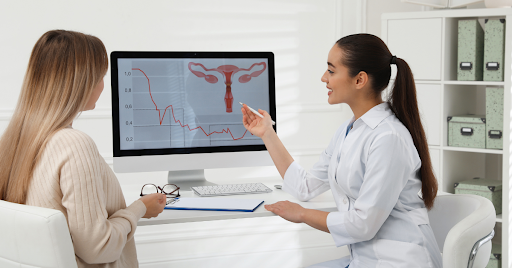
Going to a fertility clinic for the first time can be daunting and overwhelming. However, it’s important to remember that the goal of your first appointment is to gather information about your fertility health and develop a personalized plan of action to help you conceive. While each clinic may do things a little differently, you may still be wondering about what typically happens at your first fertility clinic appointment.
Your First Fertility Clinic Appointment
Attending your first fertility clinic appointment can be a nerve-wracking experience, but it’s an important step in your journey to parenthood. Here at Carolinas Fertility Institute, we aim to compassionately guide each patient to parenthood.
Medical History and Physical Exam
During your first consultation at a fertility clinic, you will often be asked to provide a detailed medical history to your fertility specialist. This information can include previous surgeries, medical conditions, and any medications you’re taking. Additionally, your doctor may ask if you have had any previous pregnancies, miscarriages, or past fertility treatments. Then you will undergo a physical exam to check for any underlying medical conditions that could affect your fertility.
Fertility Testing
Following your medical history and physical exam, your fertility specialist will likely order a series of tests to assess your fertility. Some of these tests may include:
- Blood Tests – Blood tests are used to measure your hormone levels, including follicle-stimulating hormone (FSH), luteinizing hormone (LH), estradiol, and thyroid-stimulating hormone (TSH). These hormones play a critical role in your reproductive cycle and can help your doctor identify any hormonal imbalances that may be affecting your fertility.
- Ultrasound – An ultrasound is a non-invasive procedure that uses high-frequency sound waves to produce images of your reproductive organs. This test can help your doctor assess the health of your ovaries, uterus, and fallopian tubes.
- Semen Analysis – If you’re trying to conceive with a male partner, your doctor may order a semen analysis. This test evaluates the quantity and quality of sperm in your partner’s semen.
- Ovarian Reserve Testing – This test involves blood work and an ultrasound to determine the quantity and quality of your eggs. This information can help your doctor assess your ovarian reserve, or the number of eggs remaining in your ovaries.
Other imaging tests and procedures may include an ultrasound exam, sonohysterography, hysterosalpingography, hysteroscopy, or laparoscopy. It is unlikely that a woman has all of these tests and procedures. In most cases, the results of previous tests and procedures inform the need for future tests.
Developing a Treatment Plan
Once your fertility specialist has reviewed the results of your medical history and fertility testing, they will develop a personalized treatment plan to help you achieve pregnancy. Your treatment plan may include medication to regulate your hormones or stimulate ovulation, intrauterine insemination (IUI), or in vitro fertilization (IVF). Your doctor will discuss the details of each treatment option with you, including the risks, benefits, and success rates. They will also help you determine the best course of action based on your individual needs and preferences.
Ask Questions
After you go through all of the standard processes of your first appointment at a fertility clinic, you’re bound to be left with some unanswered questions. Take the latter half of your appointment to inquire about things like potential treatment costs, clinic success rates, recommended lifestyle changes, and next steps. Remember that your fertility specialist is there to help you and will be more than happy to answer any questions you have.
Our knowledgeable and dedicated staff is here to help you every step of the way when it comes to what to expect at your first fertility clinic appointment. We also offer a wide variety of services, from fertility evaluations to In Vitro Fertilization. Contact us today to schedule an initial consultation or call our Charlotte office at (844) 686-2233 or our office in the Triad at (336) 448-9100.